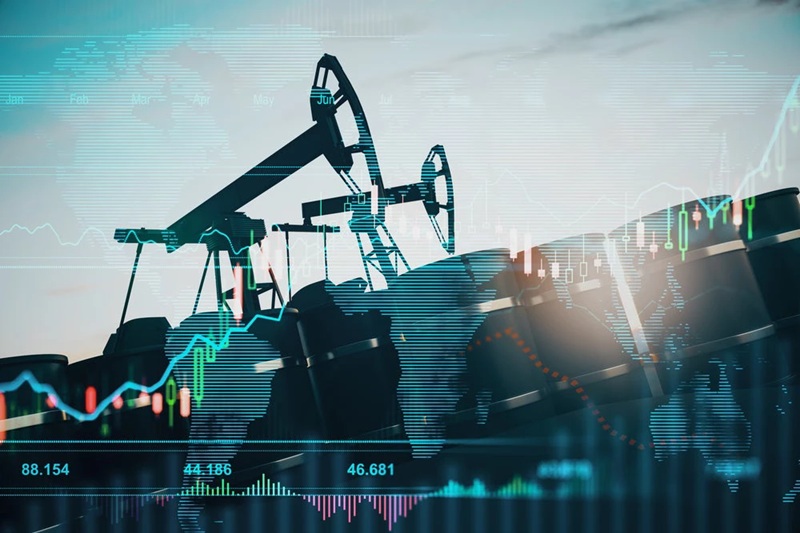
The role of an oil broker Singapore has never been more critical to global energy security, as these financial intermediaries orchestrate billions of dollars in petroleum transactions from the heart of Southeast Asia’s trading hub. In the gleaming towers that line Marina Bay, a different kind of oil rig operates—one built not of steel and concrete, but of relationships, market intelligence, and split-second decision-making that can influence fuel prices from Mumbai to Manchester.
The Pulse of Global Energy Trading
Singapore’s emergence as the world’s third-largest oil trading centre didn’t happen by accident. The island nation’s strategic position along major shipping lanes, combined with its robust legal framework and time zone advantages, has created the perfect ecosystem for oil brokerage. Here, the day begins as London winds down and New York prepares to wake, creating a 24-hour cycle of continuous trading that keeps the global energy market beating.
The work of oil brokers extends far beyond simple buy-and-sell transactions. These professionals serve as the connective tissue between oil producers, refineries, and end users, navigating a labyrinth of contracts, regulations, and market fluctuations that would perplex even seasoned financial analysts. Their expertise becomes particularly vital during times of geopolitical uncertainty, when a single trade can ripple through global supply chains within hours.
Decoding the Broker’s Toolkit
Modern oil brokerage requires a sophisticated understanding of multiple moving parts:
• Market Analysis: Real-time monitoring of geopolitical events, weather patterns, and economic indicators that influence oil prices
• Risk Management: Sophisticated hedging strategies to protect clients from volatile price swings
• Regulatory Compliance: Navigation of international trade laws, sanctions, and environmental regulations
• Relationship Building: Cultivation of trust-based networks spanning continents and cultures
• Technology Integration: Utilisation of cutting-edge trading platforms and data analytics tools
The complexity of these operations has evolved dramatically over the past decade. Where once a broker might handle a handful of transactions per day, today’s professionals coordinate dozens of simultaneous deals, each requiring precise timing and comprehensive market knowledge.
The Human Element in Digital Trading
Despite advancing automation, the oil brokerage industry remains fundamentally human. Veteran brokers speak of reading between the lines of market reports, sensing shifts in sentiment before they appear in official data, and maintaining relationships that span decades. These intangible skills become particularly valuable during market stress, when algorithm-driven trading can amplify volatility rather than smooth it.
“The art of oil brokerage lies not just in understanding numbers, but in understanding people,” explains a senior industry professional with over two decades of experience in Singapore’s energy sector. “A successful broker reads not only market charts but also the subtle cues in a client’s voice, the hesitation before a commitment, the urgency behind a seemingly routine inquiry.”
This human dimension extends to the broader impact of brokerage decisions. Behind every major oil trade lie countless smaller consequences: the price families pay at petrol stations, the cost of heating homes during winter, the viability of industrial operations that employ thousands. Singapore’s brokers carry this responsibility with quiet professionalism, understanding that their work directly influences global economic stability.
Navigating Regulatory Waters
Singapore’s oil brokerage sector operates within one of the world’s most sophisticated regulatory frameworks. The Monetary Authority of Singapore maintains strict oversight whilst fostering innovation, creating an environment where legitimate business can flourish whilst protecting against market manipulation and fraud.
Recent regulatory developments have focused on environmental, social, and governance (ESG) considerations, reflecting growing global consciousness about climate change. Brokers now routinely evaluate the environmental impact of trades, advise clients on carbon footprint implications, and facilitate transactions in renewable energy derivatives—a marked evolution from the purely profit-driven focus of previous decades.
Technology’s Transformative Impact
The digitalisation of oil brokerage has accelerated dramatically, particularly following recent global disruptions that highlighted the importance of remote trading capabilities. Artificial intelligence now assists with pattern recognition and risk assessment, whilst blockchain technology promises to streamline settlement processes and reduce counterparty risk.
However, technology serves to augment rather than replace human expertise. The most successful brokers have learned to harness digital tools whilst maintaining the relationship-focused approach that has long defined the industry’s success.
Future Horizons
As global energy markets evolve toward greater sustainability, Singapore’s oil brokers are positioning themselves at the forefront of this transition. The same skills that made them successful in traditional petroleum markets—market intelligence, risk management, and relationship building—prove equally valuable in emerging sectors such as liquefied natural gas, biofuels, and carbon trading.
The industry’s future will likely see increased specialisation, with brokers developing expertise in specific energy types or geographic regions. Singapore’s regulatory environment and strategic location position it well to remain a central hub for these evolving markets.
In this dynamic landscape, the enduring value of skilled professionals becomes clear. Whilst markets may shift and technologies advance, the fundamental need for trusted intermediaries who can navigate complexity with both analytical rigour and human insight ensures that the role of an oil broker Singapore will remain essential to global energy security for decades to come.





